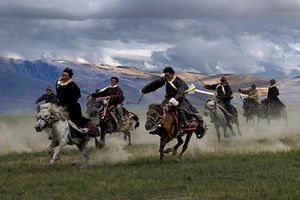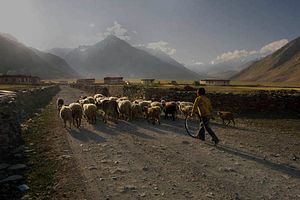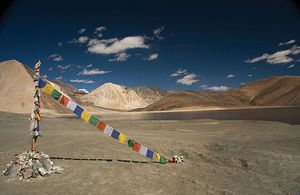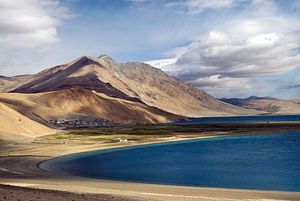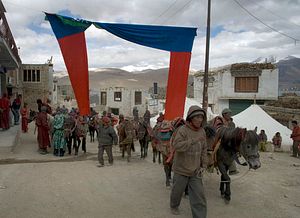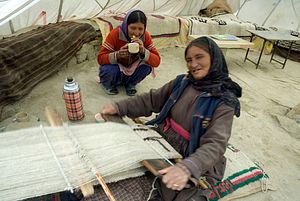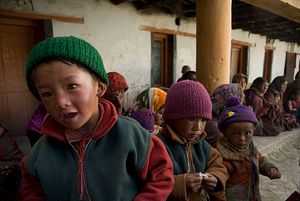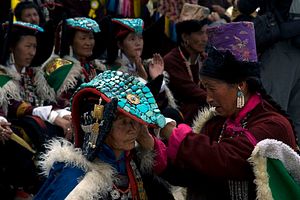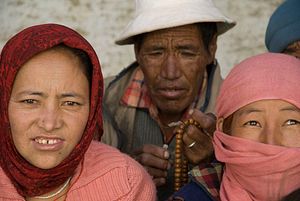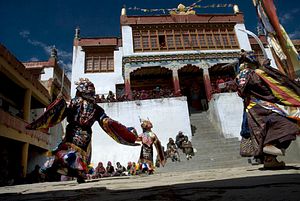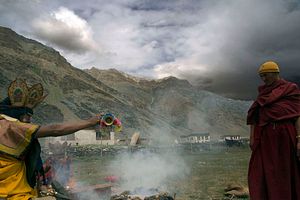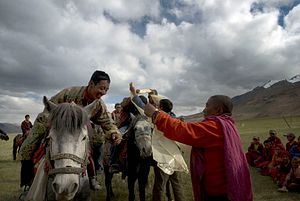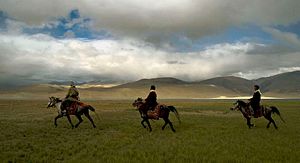The high-altitude plains of Rupshu valley, Eastern Ladakh are home to the Changpa, a nomadic pastoralist tribe. For generations, they have lived in complete harmony with their land – a cold desert plateau with an average altitude of over 3700 meters, too inhospitable for farming and which remains under a thick blanket of snow for seven months a year. The traditional pastoral system of the Changpas is centered around their livestock – the Changpas rear yaks, sheep and horses; and the famous “pashmina” goats (whose soft wool is famous throughout the world). Their ancestral way of life has been the key to the survival of the Changpa, who have used their indigenous knowledge system to optimize the use of rangeland vegetation in Rupshu valley, where the grazing of yaks, sheep, goats and horses is regulated through a well-planned migration in a land characterized by a fragile ecosystem.
Predominantly Buddhists, the Changpas have shreds of animism in their religious beliefs that can be traced back to their herding tradition: for a Changpa nomad, his sheep are intrinsically sacred creatures bestowed upon him by the gods of the valley.
Rupshu valley is home to a few brackish lakes, the most important of which are Tso Moriri and Pangong Tso. It was on the banks of Pangong Tso that the Sino-Indian war of 1962 reached one of its fiercest climaxes, and the lake has remained a bone of contention between India and China. The ongoing dispute has posed a considerable threat to the fragile ecology of the area and consequently the lives of the nomadic tribe. The increasing attractions of alternative livelihoods, an influx of tourism in the area, and some significant climate changes such as unnaturally heavy snowfalls resulting in the deaths of livestock in recent years have only added to the threats that the Changpa now face.













